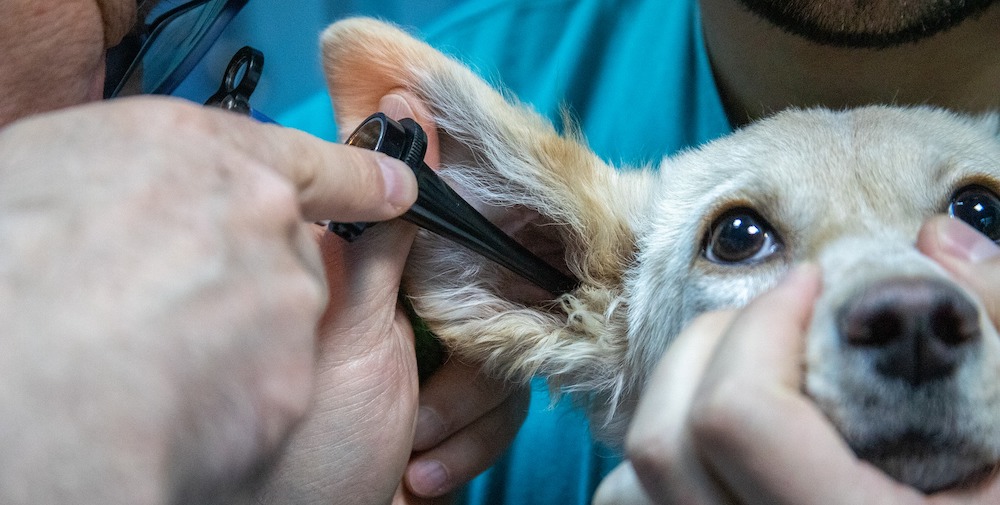Allergies can affect your dog and your dog’s health just like in humans. They can range from foods, environment, insects or drugs and if left untreated, can make your dog very uncomfortable and affect their general well-being. So, how do you know if your dog has an allergy? Here are 5 signs your dog has allergies.

This is a common sign of allergies. Excessive scratching can be isolated to one area or be a general itchiness across your dog’s body. Some of the common areas that are affected are your dog’s legs, face, ears and hindquarters. These areas are often licked, scratched and bitten, resulting in some hair loss, inflamed skin and sores.
Hives are more easily visible on dog’s that have short fur. They present as raised lumps across your dog’s body and are sometimes accompanied by itchiness. Hives are not harmful but can cause dog’s a great deal of discomfort and distress and can become infected if the skin is broken.
Recurring ear infections can be a sign that your dog is suffering from an allergy. Why? Because allergies cause increased inflammation in the ear canal this leads to conditions that are perfect for bacteria and yeast to grow. These infections and inflammation can lead to pain.

Digestion issues with your dog can present as itchiness, vomiting and diarrhea. However, any allergy can present this way, making it difficult to diagnose a food allergy. Diagnosis requires placing your dog on a limited diet and monitoring the dog’s reaction over a period of time to determine if it is digestion issue.
Anaphylaxis is a severe allergic reaction and causes a drop in blood pressure, difficulty breathing, your dog to collapse or a lack of control of the bladder and bowels of the dog. Anaphylactic reactions are very rare and are most often seen after insect (eg. bee stings).
If anaphylaxis occurs, ensure you visit your vet immediately.
The treatment of allergic reactions will vary depending on the severity. However, in general the following treatments are likely to be administered.
If your dog suffers from any of the above symptoms, ensure you contact Karingal Vet Hospital for advice, diagnosis and treatment. Feel free to make an appointment for a complete assessment online or over the phone today.